Remember all their faces: Why “Orange is the New Black” actually matters
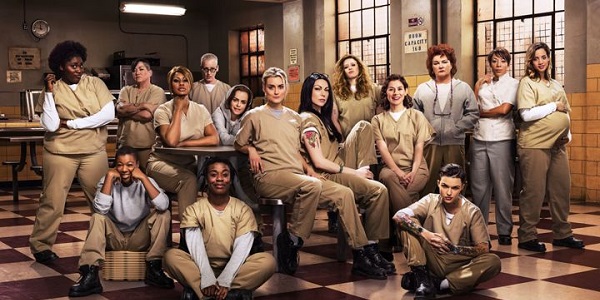
The fourth season of OITNB left me ugly-crying as I sat in a heap on the bed and snot flowed from my nose. No TV show, book, or movie left such a harrowing impact as did OITNB. (I will try super hard to not spoil anything in season four, but there are spoilers in seasons 1-3. Sorry!)
While I went through withdrawals, I spent hours watching interviews with the cast members. That’s when I stumbled on an interview with Piper Kerman, the author of the book and the person who the character Piper Chapman is based on. In her interview Piper Kerman discussed the horrors of the criminal justice system.
What I discovered resonated with me even more than the final episodes of season four:
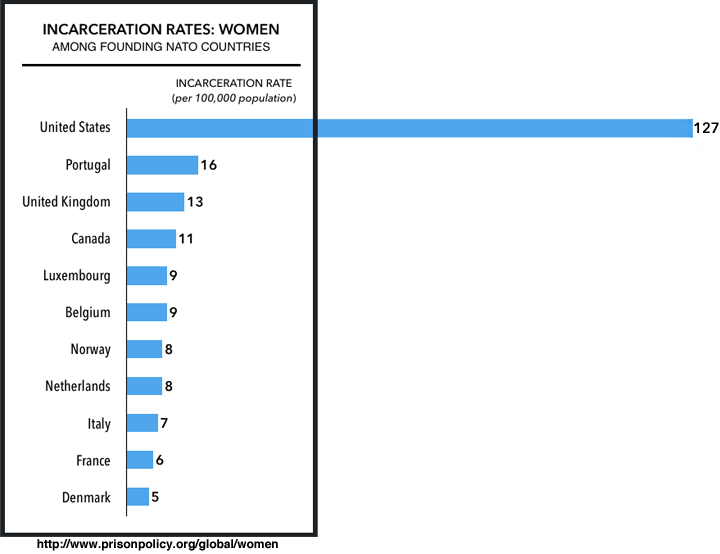
Incarcerated women: Female incarceration in the U.S. is the fastest growing prison population in the world. There are over 200,000 incarcerated women, which is about the same amount of people living in Salt Lake City. (The United States imprisons 127 women per 100,000 people on average). That number far outweighs any country in the entire world and that rate is beginning to spiral out of control. There are eight times more incarcerated women now than there were in 1980.
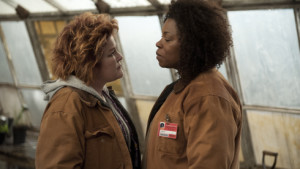
Race in prisons and jails: Racial minorities are disproportionately incarcerated for both men and women in the U.S. 30 percent of the female prison population is made up of black women, even though they only make up 13 percent of the overall population. The same is true for Latina and Hispanic women, they make up 16 percent of the incarcerated population yet they only make up 11 percent of the total U.S. population. However, the rate of incarcerated white women and men has grown significantly in the last couple of years.
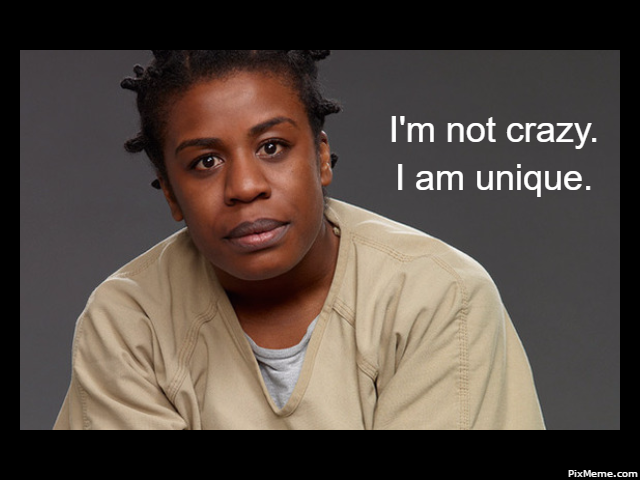 Mental Health: Suzanne “Crazy Eyes” is hands down the best character in the entire series. (Not to mention Uzo Abduba has won a lot of awards for playing Suzanne!) She has so much depth, kindness, and love. However, because to her mental illness, she’s easily manipulated and she flies off the handle. Suzanne, along with Lolly, are products of the over-incarceration of mentally ill people. The U.S. justice system is increasingly treating jails and prisons as a dumping ground to leave all of the mentally ill people. It is estimated that “20 percent of inmates in jails and 15 percent of inmates in prisons have a serious illness.” There are an estimated 356,000 people with mental illness in prison, but only 35,000 people living in state mental hospitals.
Mental Health: Suzanne “Crazy Eyes” is hands down the best character in the entire series. (Not to mention Uzo Abduba has won a lot of awards for playing Suzanne!) She has so much depth, kindness, and love. However, because to her mental illness, she’s easily manipulated and she flies off the handle. Suzanne, along with Lolly, are products of the over-incarceration of mentally ill people. The U.S. justice system is increasingly treating jails and prisons as a dumping ground to leave all of the mentally ill people. It is estimated that “20 percent of inmates in jails and 15 percent of inmates in prisons have a serious illness.” There are an estimated 356,000 people with mental illness in prison, but only 35,000 people living in state mental hospitals.

Motherhood: I’ve been haunted by Dayanara’s baby ever since she gave birth. What happened to the baby and all of Daya’s siblings? But Daya wasn’t the only character to be separated from her kids while she was in prison; Sophia, Aleida, Gloria and Maria are all helpless as their kids grow up without them. Unfortunately, there are no statistics on the number of babies born in jails and prisons across the country, but motherhood during incarceration is a huge issue. The rate of incarcerated mothers rose 700 percent between 1980 and 2017, one in six incarcerated women have a child under the age of 18. That means that 1 in 28 kids in the U.S. has an incarcerated parent. If you break that down, “One in 9 African American children (11.4%), 1 in 28 Hispanic children (3.5%), and 1 in 57 white children (1.8%) in the United States have an incarcerated parent.”
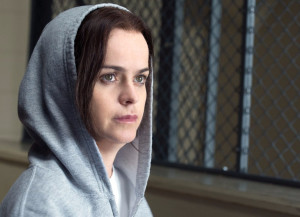
Abuse: Tiffany “Pennsatucky” Doggett’s life is tragic. Her backstory is littered with accounts of sexual abuse, exploitation and rape. Doggett is not alone. the vast majority of women incarcerated have been abused. Nearly 75 percent are survivors of sexual abuse and 82 percent are survivors of physical abuse.
Suicide: Suicide is a rampant problem in prisons and jails. Since 2000, the U.S. Department of Justice reports the top reason for death in 2013 jails is suicide. More often than not, it is younger men who were just barely taken to jail who end up taking their own lives. (I wonder if the increasing rate of mentally ill people being incarcerated is somehow correlated with the increasing rate of suicides in the prison system.)
We need prison reform so vulnerable women and men aren’t just thrown unethically into the justice system. As Regina Spektor says in the intro, “Remember all their faces, Remember all their voices” because OITNB is terrifyingly real.

—The U.S. justice system is increasingly treating jails and prisons as a dumping ground to leave all of the mentally ill people. (???)
“All the mentally ill people”??
We are about 20% of society, a broad and diverse demographic earning to the millions, holding every university degree, and every professional, white, and blue collar job.
You misspeak.
Harold A. Maio, retired mental health editor